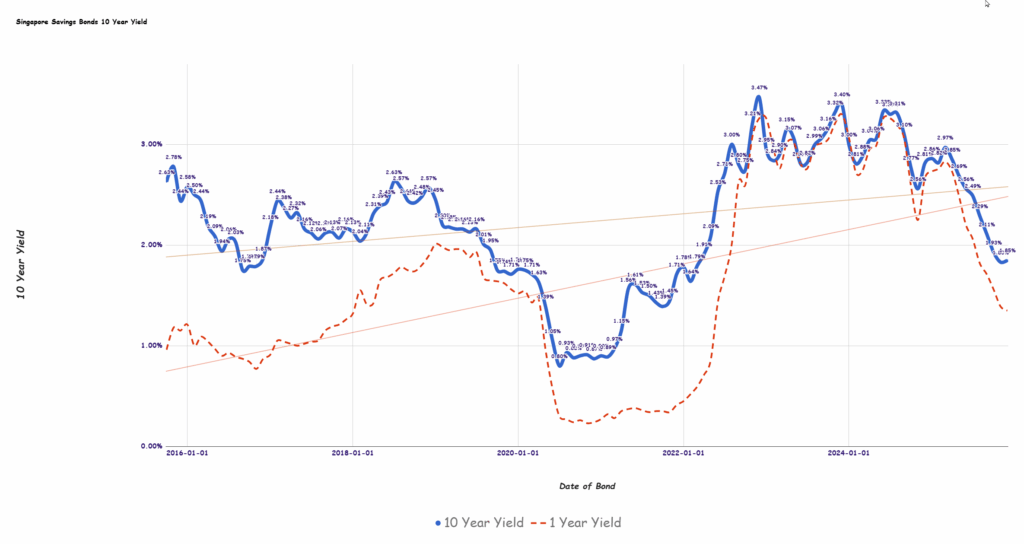Why Your Retirement Spending Might Actually Be Boosting Your Net Worth—And Why Everyone Else Is Getting It Wrong
Ever sat across the table from a friend who’s been retired for seven years and wondered if you missed some secret handshake to financial freedom? That’s exactly where my mind went during lunch the other day with an old pal—someone who not only reads my blog but has lived through the highs and lows of early retirement. We traded stories about life changes, from ditching rented digs for a shiny new BTO to grappling with whether this generation is utterly doomed by sky-high home prices. Then the conversation took a sharp turn into wealth—his net worth, mostly parked in public-listed stocks, has surged quite impressively. Yet, hearing about peers tripling their net worth stirred that familiar cocktail of worry and “Am I doing enough?” We both know the markets have been undeniably kind, but can we truly trust that luck will stick around? This chat pulled back the curtain on the complex dance between optimistic markets, the unexpected “good problems” of surplus wealth, and the hard truths about retirement planning that not many talk about. Ready to challenge what you think you know about early retirement and wealth growth? Let’s dive in. LEARN MORE
I went out for lunch with a long time friend of mine (and a reader of my blog in some ways).
We were keeping each other updated about how life has been, discussing about moving away from renting to his family’s new BTO, whether we think the current generation is screwed with the high home prices.
A part of our discussion dovetailed to how his experience was, early retiring for the past 7 years. He shared that looking back… the net worth has grown, with mainly majority of his net worth in a portfolio of public-listed securities having grown in value.
As he observed that some of his peers net worth went up by 3 times it would easily make someone worried… perhaps anxious… perhaps second guess if they should just continue to work. Yet sometimes we have to reset our lens that some of our friends could be top performers as well.
My friend would agree with me that the markets have been kind to him during this period where he mostly did not have work income coming in. There are work income because he did went back to work on and off, but it is an admittance that markets have been generally good.
He would have realized some things that he would consider more before retiring. He is positively and negatively surprised with various aspects of the markets.
I seen some really poor takes about learning from our own experiences.
They retired, or some not retired, but saw their net wealth went up during their retirement.
Mentally, this might surprised them. I am sure that in their planning leading up to their retirement:
- They know the markets are volatile.
- There are things like bear markets.
- Perhaps that their own spending patterns is uncertain.
- How life will unfold might surprised their family.
A good markets that they experienced during their time means there were less to be worried about. Their wealth ends up building up.
Now they have a “good dilemma” with “excess” money that they don’t know what to do with.
Should they give more to their children? If so, how much more? What is the consideration?
What rubs me the wrong way is some choose to say we are less optimistic and should be discuss more about how to spend money, on excess wealth.
I like talking to this friend of mine because before retiring, his job requires him to analyze and give his take to clients regarding large financial deals. Again and again.
This builds up balanced critical thinking on most issues.
We got to admit that we didn’t lived through a potential poor sequence of return to retire in the past 15 years. I live out the 2000-2009 period because I believe that is a potentially very challenging historical sequence.
A negative sequence of return is not just a 30% fall in market, but what is a combination of event. I would usually describe a negative sequence of return that is related to income planning as we overspend, relative to our portfolio over time such that the portfolio cannot provide the income long enough for the tenure that you need.
People get big market plunges. What most missed out is persistently high inflation (with an emphasis on persistently).
Most would know markets are volatile and we got to be more thoughtful in our income planning. We would have some conservatism in our planning. I am sure these folks who give poor takes on retirement, financial independence, income planning did the same as well.
Living through a personal positive income experience (even for less than 10 years) is very different than all experiences with a portfolio of equities and fixed income will be positive.
I personally they know that, but their lens have been tainted by their own positive experience that we have less to worry about.
There are many in the retail crowd that focus on the people who tells their actual retirement, income experiences. Hearing the finer details of people who actually retire is always good to adjust your bearings, better plan for your family, but it can be pretty corrosive in that your own sequence might not be very similar to them.
Yet, I experience many times of “aren’t all this only in theory?”, “have you tried it yourself?”, “this person did this and it worked out okay?”
If you glean into most of the income spending plans that you see working, you would realize they work because
- Everyone didn’t went through a poor sequence of return generally.
- What made their plan actually work is less about what you think that made it work but something else.
Those that were forced back to work, or find some side hustles, is indirectly admitting there were flaws in planning that could have been taken care of better.
To me that means not everyone’s case is sunshine and roses always. Our advisers talked to enough clients at work. There were the ones confident about their income plans but there were also many that was anxious if their plans, or the plans we provide for them will eventually work. Whether the plans are conservative enough.
If I find that markets are always optimistic, that sequence of returns are not a factor that can always be addressed easily every year on the fly, I would also wish to be optimistic and give readers and clients more confidence.
Why won’t I want to do that? Why won’t I want to give everyone more optionality especially when there are people mentally trapped at work?
The fact is that income planning is not so simple, mainly that many of the inputs going in is less than certain. And I know not everyone goes through the same investing experience, came in with the same investing experience.
Most people understand that just because they didn’t get cancer for the past 40 years of their lives doesn’t mean they won’t get cancer.
And most won’t have a poor take such as “aren’t we worried about cancer a bit too much? shouldn’t we be more optimistic? why need to buy insurance when I never experienced it for the past 40 years?”
I just hope folks can see there are symmetry in many of these kind of planning.
If you want to trade these stocks I mentioned, you can open an account with Interactive Brokers. Interactive Brokers is the leading low-cost and efficient broker I use and trust to invest & trade my holdings in Singapore, the United States, London Stock Exchange and Hong Kong Stock Exchange. They allow you to trade stocks, ETFs, options, futures, forex, bonds and funds worldwide from a single integrated account.
You can read more about my thoughts about Interactive Brokers in this Interactive Brokers Deep Dive Series, starting with how to create & fund your Interactive Brokers account easily.


















Post Comment